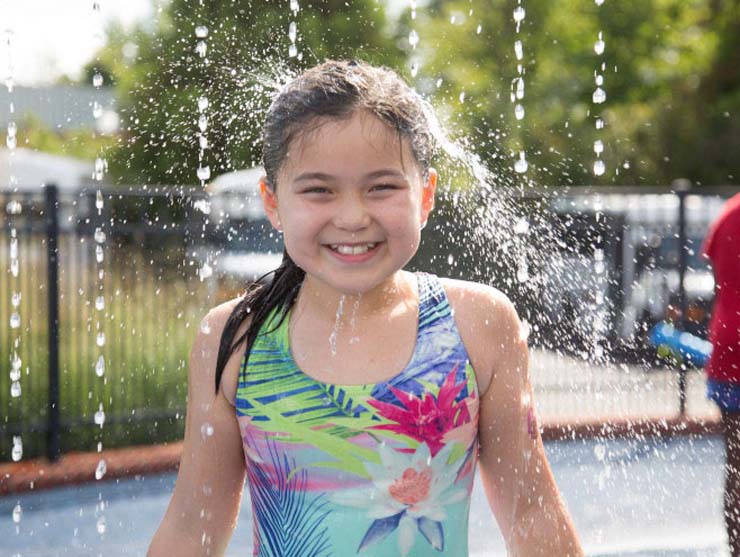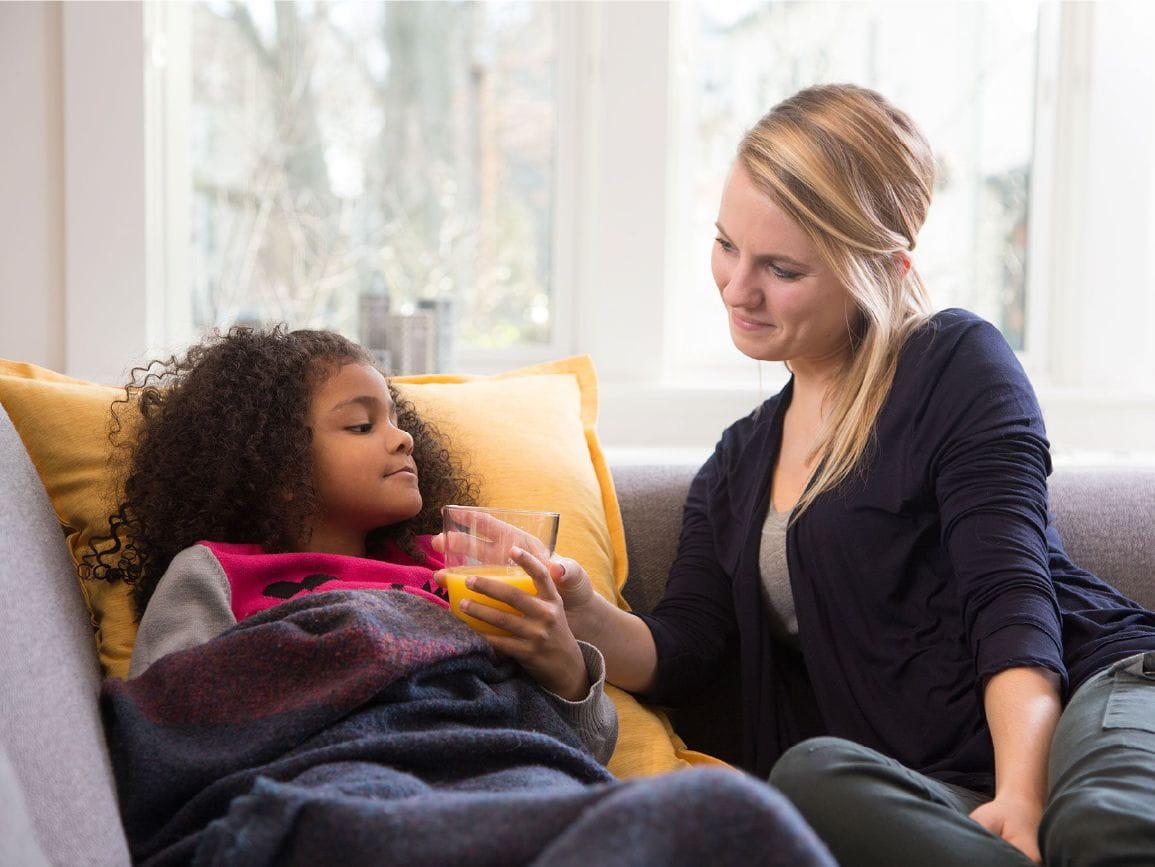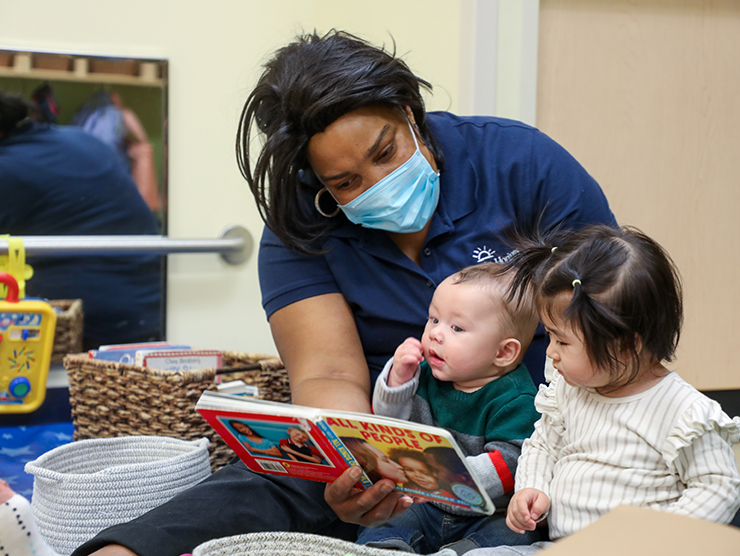Summer may seem far away, especially if you’re experiencing that chilly winter weather, but the end of the school year will be here before we know it. And with all of the different types of summer camps for kids out there, making a decision can feel a little overwhelming.
From location to cost to your child’s interests and personality – there are several things that should factor into your family’s summer camp choice. Here are some tips from parents on how to choose summer camps for kids and things to consider when deciding where to send them.
12 Tips for Choosing Kids’ Summer Camps
1. Early bird catches the worm…and sometimes the savings too. Not only is it important to choose a camp program early so you get your first choice, it can also be financially beneficial. Some camps will offer incentives for signing up before a certain window of time.
2. Commit to one program (if you can). Summer camps usually run 6-10 weeks. Unless it’s important to you or your child to try several different camps, it might not be worth transitioning a younger child multiple times for such a short stretch. Plus, camps often give discounts for the more weeks you sign up. 3. Know the minimum requirements. If you can’t commit to one program or you prefer not to (maybe your child wants to do tennis camp one week, dance camp another, etc…), make sure you know the minimum amount of weeks you’ll need to commit to for each summer camp. Sometimes they run in two-week segments, which means if you sign up for two weeks and take one week off for a family vacation, you will be paying for a week you don’t need.
4. Location, location, location. This can get tricky, especially if you have more than one child. You may be traveling to both a summer camp for toddler and preschoolers and a summer camp for school-age kids, in which case you’ll probably want to keep both programs as close to each other as possible. Think about how the program location factors into your daily commute – or, maybe you have someone nearby in your parenting village that can help with drop-off and pickup.
5. Traditional or specialty program? A traditional program is usually non-competitive and will expose your child to a variety of different skills and summer camp activities. However, since each camp can vary greatly, you’ll need to look carefully at what they offer to make sure there is enough that interests your child.
On the flipside, a specialty program is usually a camp that focuses on a specific skill and/or activity, such as soccer, tennis, or gymnastics. These programs can be great if your child absolutely loves a particular activity.
6. Hours of operation and program length. Summer camp hours and before and after camp care availability vary greatly from one program to another. Some programs are more flexible than others, and might not require certain time commitments. For example, you might be charged once per week based on the amount of after camp care you actually used in 15-minute increments. This option is especially convenient if you ever need to pick up early or work late. Also keep in mind the dates that your kids’ summer camp begins and ends, and how they might line up with your work and travel commitments.
7. What is the summer camp’s Plan B? Some summer camps rely on warm, sunny weather to run great programming. Other camps are prepared for rain or inclement weather. If your child is really lucky, they may even be able to head into an air-conditioned space on really hot days. Think about the worst case scenario… if it rains for an entire week straight (which has been known to happen, depending on where you live), then what is the camp equipped to provide without impacting the program significantly? No one likes rain in the summer, but since it’s likely to happen, be sure you’re happy with the rainy day plan for the summer camp you choose.
8. What is the real cost of summer camp? Let’s be honest, the cost of the program is probably pretty high on most parents’ lists of considerations. When looking at prices, you have to think about all that it includes. Ask about things like lunch, snacks, beverages, transportation, t-shirts, field trips, swim lessons, extra care hours, staff ratios, and anything else that might be important to you.
9. Going on field trips. If the summer camp offers field trips, inquire about the details, including whether or not they’re required. You’ll want to ask what supervision is like when the children are off-site and how they will be transported to their destination. And as mentioned in #8, find out if there are extra expenses when the summer camp goes on a field trip.
10. Ask about the camp counselors. What kind of training do the summer camp counselors receive? Are they trained in CPR/First Aid? Are background checks conducted? What are the actual backgrounds of the counselors? What are the ratios? Is there a Registered Nurse on staff? In addition, if an activity has a specialist, what is the background required for that specialist?
11. Meals: brown bag it or hot lunch? Some camps provide hot lunch with cold lunch alternatives to children while others require parents to send their kids with packed lunches and snacks and beverages. If the camp does provide lunch, are there alternative options in case your child isn’t a fan of Friday hamburgers? What if your child has dietary restrictions – will the camp accommodate those? Depending on your point of view, eight weeks of not having to pack a lunch might be well worth the cost.
12. The reality of camp swim programs. The level of swim training that your child’s camp counselors may have received can vary from camp to camp, which means your child may have a lot of fun and be safe in the water, but might not learn the proper form for the crawl stroke. And that’s okay. However, if you want your child to be a swimmer and have solid swim skills, you may want to look for a specialized swim camp or sign up for lessons outside of camp.
Regardless of the kids’ summer camp you choose, with the right level of research, there’s a pretty good chance your child will have fun, make new friends, and create some amazing summer camp memories.
More on Summer Camps for Kids
- Use this summer camp checklist for in-depth questions to ask when evaluating programs for your children.
- Learn more about Summer Explorations at Bright Horizons® and find summer programs and events at a center near you.
- Read more posts about summer camp from the Family Room bloggers.





